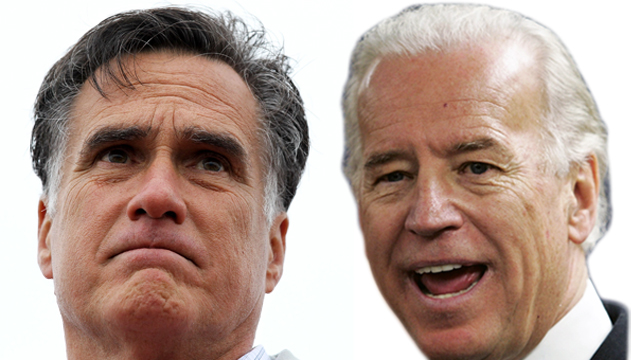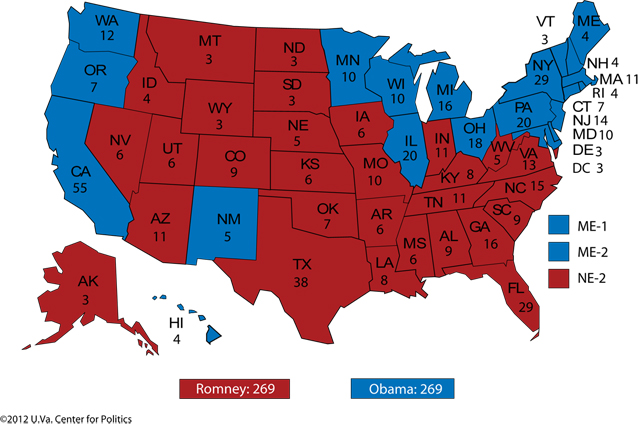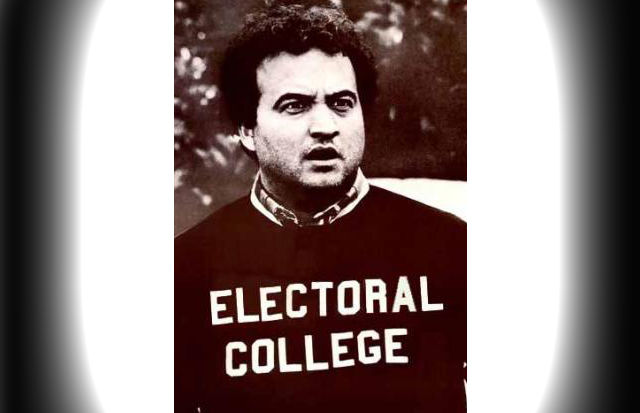
Mitt Romney is president … with Joe Biden as his vice president.
It’s a fully plausible scenario under the constitutional rules of the Electoral College system. And with Obama and Romney running neck-and-neck, the stage may be set for some historic weirdness.
Here’s how it would work (short version):
1. Electoral College Tie
2. Election Defers to Congress
3. House Picks President (Romney)
4. Senate Picks VP (Biden)
Long version:
The 23rd amendment to the Constitution, passed in 1961 and taking effect in the 1964 election, gave three electoral votes to the District of Columbia. The total number of votes increased to 538 — an even number — introducing the potential for a 269-269 tie.
In a tie, the legislature takes over and picks the president and vice president, per the Constitution.

Edison Research President Larry Rosin.
(Technically, it’s the failure to achieve an Electoral College majority — not a “tie” — that hands the election to Congress. With three or more viable candidates there could be a failure to achieve majority with or without a tie. But in a two-party election, the failure to reach majority is synonymous with a tie.)
“It’s always a possibility in very close election. It’s a slim possibility, but a non-zero possibility,” Larry Rosin, president of Edison Research in Somerville, New Jersey, told Heavy.com. Edison Research is the firm that since 2003 has provided all official exit-poll data for presidential elections.
RELATED STORY: The Truth about Exit Polls
“If you take the states John Kerry won in 2004 and add Ohio and New Mexico, that would yield a tie. If Obama won the Kerry states plus Ohio and New Mexico — that’s a very plausible scenario that would yield a tie.”

In such a scenario, the House determines the president, and the Senate determines the vice president. But “they don’t do it the same way,” Rosin said, “which is an odd quirk of the Constitution.”
The House makes its pick by the votes of each of the 50 delegations to the House. “Since Romney will almost assuredly win more states than Obama,” Rosin said, “and since more House delegations are likely to be Republican, Romney would almost assuredly become president. You’d need 26 delegations for one guy to determine the president.”
In the Senate, it’s “a straight up, one man one vote, so you just need 51 votes,” Rosin said. And with the current makeup of the Senate, Biden wins. “You’d end up with Romney as president, and Biden as vice president.”

Senators are not bound to cast votes for the candidate favored by their constituents. So if Romney/Ryan pulled an upset in a Democratic state, that state’s senator(s) could still vote for Biden.
“Our founders set up a representative democracy,” Rosin said. “If no one gets a majority, these are the rules. It is likely they would vote by party and not based on the popular votes in their state. There would be immense pressure on them to vote with their party.”
Could it really happen this year?
“The people who run these kinds of simulations evaluate the chances as less than 1 percent.” Rosin said. “But it’s always a fun thing to talk about at your election night party if nothing else, because it’s always an intriguing possibility.”
And it’s a possibility that could outrage Americans if the chosen candidate didn’t carry the popular vote. Cries to scrap the Electoral College would be louder than ever.

“Every four years people kind of look at each other and ask, ‘Why do we have this Electoral College and these seemingly outdated and arcane laws that govern our election?” Rosin said. “But it’s extremely unlikely to ever change because changing the system would require three-quarters of the state legislatures and two-thirds of the House and Senate. Small states benefit so much from the electoral college that it’s inconceivable you’d get enough of them to vote against their interests. …
“On some level it seem undemocratic and outdated, however a national popular vote is actually incredibly difficult to execute. Imaging if you had a national vote as close as he Florida vote in 2000 — how difficult that would be.
“And with parts of New Jersey and New York still without power (after Hurricane Sandy), would we postpone the entire election? At least the electoral college does isolate problems. …
“It’s a clunky, undemocratic and outdated system that’s never going to change. If the founders were founding our nation today i’m sure they would find a way to create a national popular vote, but it’s a lot more complicated than people realize. It’s a big country.”